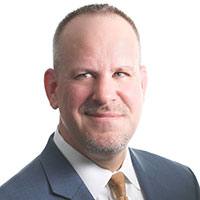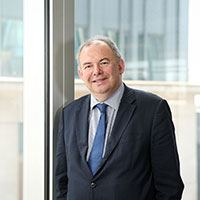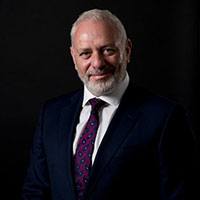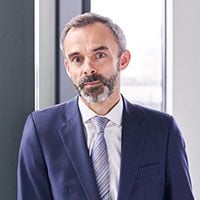Please note, The Legal 500 2024 Litigation Funding Rankings will launch at the end of October
‘The litigation funding market is exploding. It’s funding mass tort cases to patent troll cases and it’s just going to continue to cause an explosion in litigation.’
This sentiment of Weil’s Diane Sullivan, a leading New York-based litigator, is one echoed on both sides of the Atlantic as third-party funding becomes an ever-more mainstream part of the disputes landscape.
In the US, it is no longer associated purely with mass tort David v Goliath cases but has proliferated across corporate America as an option for corporate claimants across all types of disputes.
Meanwhile, the UK funding market has caught up. Driven alongside an increase in class actions, third-party funding has progressed from a last resort for the impecunious to front of mind for a range of claimants. As Chris Ross, a partner at UK LB100 firm RPC, comments:
‘Often one of the first questions that I now get from clients is “can I get funding?” The fact that this has filtered down into the consciousness of clients means that people approach you with cases that they wouldn’t have done a few years ago’.
With client demand up and the possibility of high returns, litigation has become an attractive investment. In the UK alone, the top 15 funders wield £2.2bn in assets, according to a report published by RPC in June 2022. This is up 11% from last year and almost double the £1.3bn reported in 2018.
This has attracted new entrants to the space. Whether specialist investment vehicles targeting the legal sector or financial institutions diversifying their offering, there’s a whole lot more choice both in the UK and the US than there once was.
In the UK many of the key players in our ranking remain the same as last year, but one significant shift is the removal of Vannin Capital, which was integrated into New York-based investment management giant Fortress in October 2021.
The biggest development this year though is that The Legal 500’s 2023 litigation funding rankings expand into the growing US market for the first time to identify the best funders on both sides of the pond.
Both rankings take into consideration extensive data from funders, ranging from their cases to date, to availability of capital and diversity of funding solutions. Importantly, for this year’s research we also expanded our client feedback, to really understand what matters to clients and the law firms that have used these funders’ services.
While the client data collected is confidential, we also spoke to private practice litigators in the UK and US to work out what differentiates the best funders from the rest.
A balancing act

‘Money is money. So, it’s easy to think that if a funder is going to provide you with the capital you need to bring a claim that you’ve decided you want to bring, then they’re a good funder, right? But what I have seen is that certain funders really understand the market and really understand what they’re investing in, while some don’t’ says James Berger, disputes and asset recovery partner based in DLA Piper’s New York office.
All of the funders ranked in The Legal 500’s rankings have expertise specific to the disputes funding space. While there’s no one-size-fits-all approach to funding, no matter the reason for the claimant to seek funding, in addition to providing capital, what partners and clients want from a funder is quite simple: to help – not hinder – them in getting the result they want.
Sometimes, this can be as straightforward as letting the client and their advisers get on with it, says London-based BDB Pitmans partner Jonathan Sachs: ‘Third party funders have got to have trust in the solicitors they are working with, otherwise it’s just not going to work. A good funder is one that allows us to get on with it. Third party funders shouldn’t be controlling the litigation, the clients should be. Some funders have been known to request very regular meetings and some might even pressurise claimants to accept settlement offers. Others impose strict restrictions to budgets, which can be a nightmare.’

In Berger’s experience, when the interests of the funder and their clients align, then in some cases it can proactively add value: ‘In my practice, the good funders are making everyone smarter about how to go about pursuing and prosecuting international disputes. It used to be the case that enforcement of arbitration awards and judgments was considered something of an afterthought and the main thing you had to do was to bring your merits case and win. Good funders do not let clients think that way anymore, because they have skin in the game. They have a financial stake in not only the outcome of the merits hearing but in the financial outcome of the case.’
Some of the top funders ranked by The Legal 500 this year have been either established by ex-litigators or have hired former litigators to advise claimants. Others have honed in on specialist areas of focus or built teams with knowledge of particular cases, such as IP and enforcement claims, to add value to claimants.
Of course, there are inevitably some circumstances when interests don’t line up, with unavoidable conflicts in funder and client priorities. For example, while funders want to be certain of the viability of their investment, clients want quick answers. On the flipside, while clients want to know the inner workings of how funders make decisions, this is burdensome admin for the financial institution.
A buyer’s market?

The good news for claimants with an attractive funding opportunity is that it’s increasingly a buyer’s market, says Lucy Rigby, a competition partner at disputes boutique Hausfeld: ‘As the funding market is becoming more and more competitive, we’re seeing funders increasingly recognise the need to differentiate themselves on the basis of speed of decision-making and transparency as to their processes. It’s vital to have a degree of certainty at the outset regarding how long it will take to receive a go/no-go decision on investment and what steps are involved in getting to that point.’
This has also driven funders to be innovative in the services they offer. As the market has developed, options have become both more bespoke and more wide ranging. Among the highlights from the submissions of our top-ranked funders are a range of innovative structures from single case arrangements, portfolio funding of multiple cases for firms and corporates as well as purchasing claims and law firm financing.

As Michael Barnett, co-founder of UK commercial disputes-only firm Quillon Law, summarises, ‘it’s an exciting time for the litigation funding market. It has developed well beyond finding individual cases to fund to now funding cross-collateralized portfolios, financing law firms’ cash flow risk, to law firm startups and working capital.’
Of course, despite their success in gaining claimant-side favour, litigation funders still face challenges and criticisms in the market, particularly as the regulatory landscape develops in the UK and US. On both sides of the pond, courts are increasing intervening in funders’ roles in driving and supporting disputes. In the UK, there has been increased judicial scrutiny both from the Competition Appeals Tribunal (CAT), in considering funding agreements when deciding whether to certify a group claim under the new opt-out regime, and in the High Court which held leading funder Therium jointly liable for significant costs in the recent case of The ECU Group plc v HSBC Bank. In the US, there is a similar trend with some courts now require disclosure of the presence of a litigation funder in certain cases.
Beyond the courts, the growing market has caught the attention of regulators. In September 2022, the EU Parliament voted in favour of regulating the disputes funding market in member states, with proposals including a 40% cap on the percentage of a court award or settlement that funders can claim.

The suggestions have been controversial, with some funders and litigators fearing that the plans might limit access to justice and make the third-party funder model unviable in EU member states, particularly for low to mid-value claims.
Julian Chamberlayne, risk and funding partner at UK disputes-only firm Stewarts, explains: ‘It superficially sounds great from a consumer protection perspective, but it’s likely to result in most funders declining to fund anything other than the enormous cases. If you took a moderate value case – even one worth in the low millions – all the way to trial, let alone appeal, the litigation budget would be significant. In that scenario, with a cap of 40%, the funder might not even get their money back.’
But if funders have proved anything over the last decade, it’s their ability to adapt and innovate to challenges. Litigation funders are clearly now a permanent and growing feature of the disputes landscape. With plenty of capital still being pumped into the space, this is only going to continue, Barnett adds: ‘If nothing else, litigation funders are ingenious in finding new ways to meet the challenge of deploying the substantial liquidity in the funding market in a way that drives aspects of the disputes market.’
UK funders
- Burford
- Harbour
- Therium Group Holdings Limited
- Augusta
- Bench Walk
- Omni Bridgeway
- Woodsford
- Balance
- LCM
Funder to watch
- Asertis
US funders
- Burford
- Omni Bridgeway
- Parabellum Capital
- Therium
- Delta Capital
- Lake Whillans Capital Partners
- Statera Capital
- Bench Walk
- Woodsford
Tier one funders
Burford (US & UK)
With financial heft and international reach, Burford has the scale and expertise to fund a full range of disputes, from single cases and portfolios to equity investments. Among its areas of expertise it counts complex asset-tracing and recovery cases. As one client notes: ‘Burford are commercially astute, not sticking to rigid formulae about the percentage chances of success because they know that the merits of a case can fluctuate as the case develops. Rather they are focused on whether they believe there is a real possibility of recovery. As such, they are willing and able to fund complex asset recovery cases.’
Harbour (UK)
An early entrant into the UK market, launching in London in 2007, Harbour has built a strong reputation globally. It leverages practice area specialists to advise on funding across a range of disputes offering single case, portfolio and claim acquisition arrangements. Co-founder Susan Dunn is well regarded in the market.
Omni Bridgeway (T1 US, T2 UK)
With a large global investment team including common and civil law experts, Omni Bridgeway offers a range of financing solutions for UK and US disputes, often with cross-border elements. In the US, it has experience financing a range of disputes through merits funding, portfolio arrangements, enforcement and claims monetisation through judgement or awards acquisition. Key contacts to note include former trial lawyer and senior partner James Batson in New York and former Latham & Watkins litigation partner Matthew Harrison in San Francisco. Its London office is well-known for its asset-tracing and recovery expertise and counts multiparty and group claims among its other areas of expertise.
Therium Group Holdings Limited (T1 UK, T2 US)
‘Therium Group Holdings Limited will quickly tell you if a potential case is a runner. The sheer number of experiences passing through has clearly created an enviable set of criteria to assess the probability of success. Therium Group Holdings Limited is also one of a handful of funders with the capacity for the very largest of cases,’ one client notes. Praised for its ‘thoughtful approach’ and ‘innovative structures’, Therium Group Holdings Limited has experience funding high-value group and class actions, securities litigation, competition claims and insolvency litigation. London-based Neil Purslow, Joshua Card and Corey Banks in New York are key contacts.
Tier two funders
Augusta (UK)
‘Augusta has disrupted the entire litigation funding market with their flexible, client-friendly approach. The other funders have all had to significantly up their game to remain competitive. When your case is funded by Augusta you feel like you are working as a team rather than fighting on two fronts – it’s a great experience’ says one client. Robert Hanna, Mark de la Haye, Fiona Heyes and head of competition and antitrust Simon Latham attract praise. Head of commercial litigation and arbitration Sean McGuiness joined in June 2021 from DLA Piper, where he was a senior associate.
Bench Walk Advisors (T2 UK, T4 US)
Launched in London in 2017, Bench Walk has quickly shot to prominence, achieving praise for speed of responses, creative structures and progressive approach. According to one client: ‘as far as funding structures go, they are market-leaders. They are often able to find creative solutions to demanding problems and have a ‘can-do’ attitude which is a rarity in the third-party funding world. They should also be commended for not just paying lip-service to ‘D&I’ but actually ‘doing it’, as reflected by the make-up of their team.’ Co-founder and managing director Adrian Chopin and global head of origination Ayse Lowe are names to note in the UK. Its US office is led by co-founder and managing director Stuart Grant who splits his time between New York and Delaware.
Parabellum Capital (US)
‘They are very fast, creative, and reasonable. You also know where things are in the process and where things stand.’ says one client. Parabellum Capital, has expertise across a range of disputes including general commercial, patent and antitrust claims as well as bankruptcy and special situations. New York-based co-founders Howard Shams and Aaron Katz are names to note. For commercial litigation cases, Dai Wai Chin Feman in New York ‘has a good nose for the key elements of a deal and gets down to the heart of the matter very quickly’, while Sean Thompson in Massachusetts has expertise in intellectual property claims.
Woodsford (T2 UK, T4 US)
‘Woodsford is an established player in the litigation funding space. It is always flexible in finding solutions for clients to make claims viable and is dogged in its determination to see claims through to a successful resolution for all stakeholders.’ In the UK, it has developed a specialism for collective competition and securities litigation and counts ESG as one of its growth areas. In the latter, London-based CEO Steven Friel, formerly a partner at Brown Rudnick and earlier DAC Beachcroft, is a leading name. In the US, it has built a niche in funding patent litigation.
Tier three funders
Balance (UK)
‘Good disrupter funder – youthful and with good profile, and less stuck in their ways than many funders’ is the description of Balance by one client. Led by former Herbert Smith Freehills associate Robert Rothkopf, who ‘understands the needs of solicitors and their clients, as well as being commercially and legally astute’, and Freshfields Bruckhaus Deringer alumni Simon Burnett, Balance offers strategic expertise in funding commercial litigation and collective actions.
Delta Capital Partners Management (US)
The ‘very innovative’ Delta Capital Partners is split across the US with teams in Chicago, Boston and New York and offers a range of funding solutions for litigation, arbitration, enforcement and recovery cases, as well as portfolios of claims. It benefits from the expertise of former lawyers with experience at firms including DLA Piper, K&L Gates, Robins Kaplan and Kirkland & Ellis. The ‘exceptional’ founder Christopher DeLise in Chicago and Boston-based Jonathan Sablone are key contacts.
LCM (UK)
AIM-listed funder LCM brings nearly 25 years of global experience, having been established in Australia in 1998. It is described by one client as ‘very savvy, commercial and user-friendly’ and specialises in single cases, especially those prosecuted by insolvency practitioners. Following Nick Rowles-Davies’ dismissal in December 2021, the ‘pragmatic and straightforward’ head of origination for EMEA Matthew Denney is a key name in London.
Lake Whillans Capital Partners (US)
‘Strategic, insightful and responsive’ New York-based funder Lake Whillans Capital Partners offers single case financing, portfolio financing and claim monetisation across a range of commercial disputes. Managing directors Boaz Weinstein (who ‘is very intelligent in managing resources and spots investment opportunities with structures that are tailored made’) and the ‘very sharp rising star’ Marla Decker were both formerly litigators at Cleary Gottlieb Steen & Hamilton.
Tier four funders
Statera Capital (US)
Chicago-based funder Statera Capital ’has people skills, excellent judgement and true litigation experience’. It finances a range of single case disputes, including enforcement actions, intellectual property and contractual matters and, with a minimum investment size of $3m, the funder is particularly popular for smaller claims or in conjunction with other funding arrangements. It benefits from the expertise of former litigators including managing director Andrew Woltman who founded the firm alongside Charles Hodgkins III.
Funder to watch
Asertis
Having established its commercial disputes arm in 2021 headed by Harshiv Thakerar, Asertis is a funder to watch. As one client said: ‘Asertis are a very dynamic and innovative funder. They have assembled a good team with exceptional connections within the industry. Crucially, Asertis have not simply focused on hiring lawyers, and have ensured a diversified skillset within the business – with exceptional financial modelling skills.’
